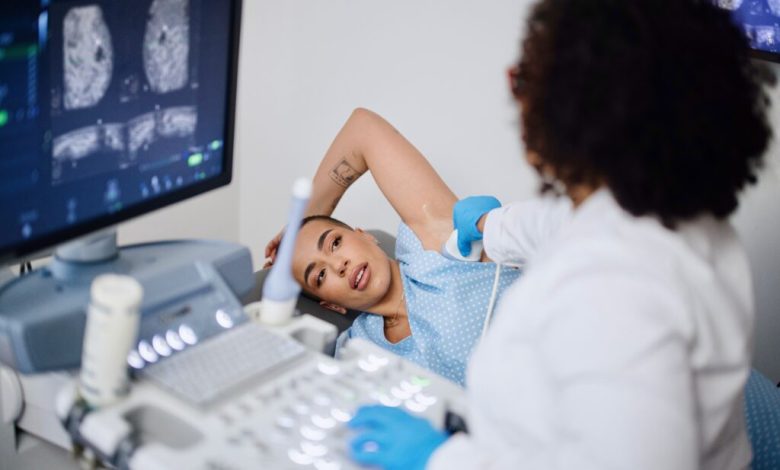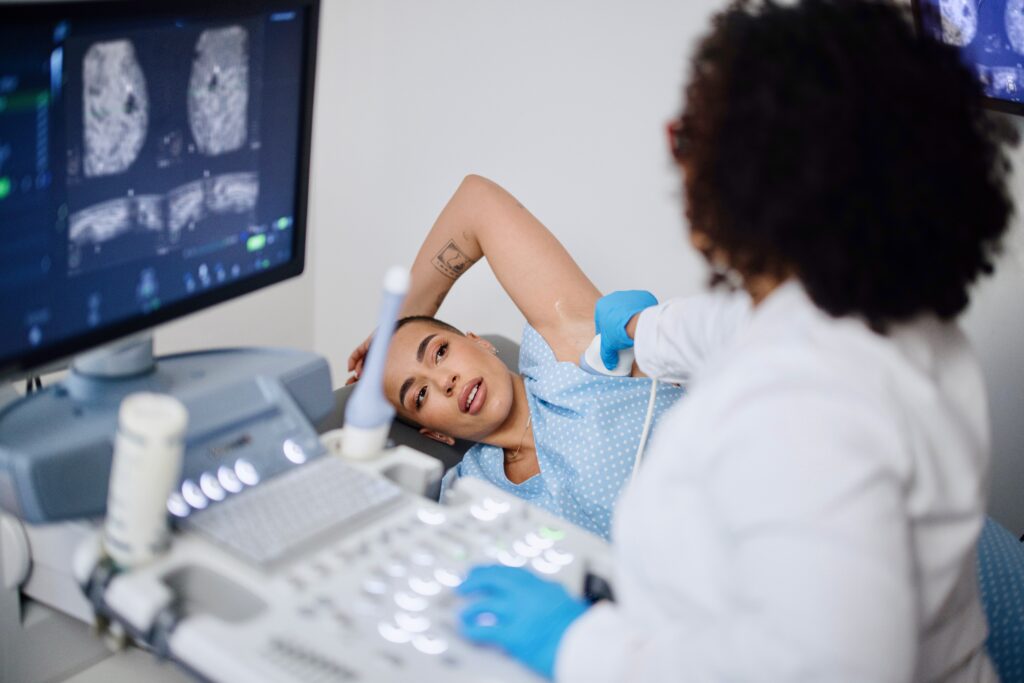BDO@ASCO June 1, 2024: Black Lung Cancer and Breast Cancer Research – BlackDoctor.org


BDO is currently covering the American Society of Clinical Oncology (ASCO) Meeting in Chicago, IL from June 1-June 3, 2024. Be sure to follow along with each of our articles titled “BDO@ASCO.”
Gene study suggests black women may not need different breast cancer drug dose
A new study shared at ASCO has investigated how Ribociclib (Ribo), a medication used to treat hormone receptor-positive metastatic breast cancer, is processed by the body in Black women. This research is important because Ribo’s breakdown is influenced by an enzyme called CYP3A, and people of different ancestries have variations in their CYP3A genes that affect how this enzyme works.
Traditionally, the Food and Drug Administration (FDA) recommends lowering the Ribo dose if it’s taken with medications that affect CYP3A activity. The concern is that some individuals might have a buildup of Ribo in their system if their bodies can’t break it down quickly enough. This could lead to increased side effects.
One specific gene, CYP3A5, has several versions that influence how well the CYP3A enzyme functions. Most whites have a version that makes them poor metabolizers (PM) of Ribo, meaning it breaks down slowly. In contrast, most Blacks have versions that make them normal or intermediate metabolizers (NM, IM), meaning it breaks down normally or somewhat slowly.
The key question researchers aimed to answer was whether Black women, who are more likely to be normal/intermediate metabolizers due to their ancestry, needed a different Ribo dose compared to white women.
The study included 14 Black women with metastatic breast cancer taking Ribo. Researchers analyzed their genes to see which version of CYP3A5 they had (PM, IM, NM) and measured how much Ribo was in their blood at different times. They also compared side effects between the groups.
Regardless of the CYP3A5 version (PM, IM, NM), the amount of Ribo in the blood appeared similar. There was a slight suggestion that women who were poor metabolizers (PM) might experience more side effects, but this wasn’t statistically significant.
Based on this small study, it seems Black women might not require a different Ribo dose compared to white women solely based on their CYP3A5 gene. However, more research is needed to confirm these results and explore if other genes play a role in how Ribo works in Black women. The study also emphasizes the importance of including more diverse patients in clinical trials to ensure everyone receives the most appropriate treatment.
Black lung cancer cells may behave differently than white ones

An abstract shared at ASCO on June 1st highlighted the differences between how Black lung cancer cells fight back.
Researchers looked specifically at African American and white patients to see if there were any differences based on either the presence of a protein called PD-L1 or structures called tertiary lymphoid structures (TLS) within the tumors. These features can influence how well immunotherapy, a treatment that harnesses the body’s immune system to fight cancer, works.
The study analyzed tissue samples from 280 patients, half from each racial group. They found that tumors from African Americans had a higher proportion of plasma cells, another type of immune cell, compared to white patients. Additionally, in white patients, tumors with high levels of PD-L1 had fewer immune-fighting T cells. Interestingly, the opposite was true for African American patients—tumors with high PD-L1 had more gamma delta T cells and resting dendritic cells. The study also identified genes that were expressed differently depending on race and the presence of PD-L1 or TLS. Notably, some genes related to plasma cells in African Americans were linked to a better chance of survival.
Overall, this research suggests that the immune system environment around lung tumors might differ between African Americans and whites. These differences could impact how well immunotherapy works. Understanding these variations could pave the way for developing more effective immunotherapies for all patients, ultimately reducing racial disparities in lung cancer treatment.
A new tool for personalized breast cancer risk assessment

Researchers presenting at ASCO have developed a new approach to predict the risk of aggressive breast cancer in young Black women. This is important because Black women are more likely to develop a particularly aggressive form called triple-negative breast cancer (TNBC), often before the age of 50 when regular screening begins. Early detection is crucial for improving survival rates, so doctors need better ways to identify women at high risk.
The new method uses a “polygenic risk score” (PRS). This score takes into account many tiny variations in a person’s genes (called SNPs) that have been linked to a higher risk of breast cancer. The researchers focused on a special PRS that considers a person’s ancestry to make the score more accurate for Black women.
The study involved over 14,000 Black women who received genetic testing for cancer risk. The researchers found that the new PRS significantly improved doctors’ ability to predict TNBC risk, especially for women under 50. The effect was similar to another known risk factor, mammographic density (the composition of breast tissue). Women with the highest PRS scores had about double the risk of TNBC.
This new PRS has the potential to be a valuable tool. It could help doctors identify young Black women at a higher risk of TNBC, allowing for earlier intervention and potentially improving survival rates.




